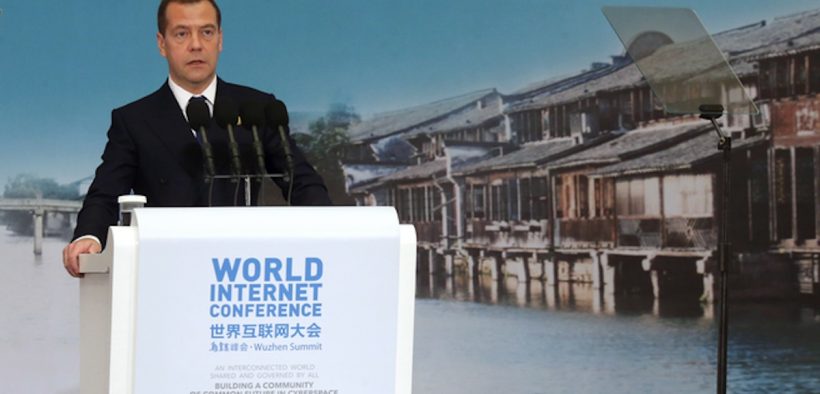Russia, New Censorship or Revived Soviet Era Control?

Will Russia also be collecting personal information on all Ukrainians, who attempt to obtain Russian passports under a “dual citizenship” guise?
On May 5th, a new law came into effect in Russia that blocks anonymous use of internet and cellular-based private messaging applications. The law was actually passed in 2017, but didn’t come into play until this week.
The new law means from now on anyone using Russian social media or any other forms of instant messaging has to register their mobile number which is then verified off their passport information. Such information will be checked through the mobile service provider during service use. The passport information will be available on demand to the registrar and individuals will be given an identification number to access social media. The mobile service provider has 20 minutes to provide such information to the owners of any chat apps and online services. If the information is not provided, the individual will not be able to use any messenger and will not be able to access any chats within Russia.
VPN Access is Non-Existent in Russia
The fine for non-compliance is 1 million Russian Rubles.
This ultimately means that private social media companies and providers have joined full hand with the Kremlin to track social media usage. Such a draconian law is supposed to protect its citizens against foreign influence, but in reality, it is another way to control its citizens and information being provided.
As a result of the implementation of this new law, The Freedom House downgraded Russia even further in regards to internet freedom. Russia has now reached an internet freedom rating next to China. The PRC is absolute dead last in internet privacy for its citizens. The criteria which Freedom House rates nations are specific to arrests of bloggers, censorship of the political and global information, and overall freedom to share anti-political rhetoric.
In 2014, Russia passed a law making every blogger with an audience over 3000 people register as Russian News with Roskomnadzor – opening the door to being censored and possibly reprimanded for unfavorable news content.
Prior to the anonymity laws, one of the most secure messenger services were Blackberry Phones with the Signal application. These phones, and/or applications are now blocked in Russia. Even China’s WeChat has had its challenges and issues with being blocked under the new Russian government laws.
The other question to pose: Does it mean that Russia will also be collecting personal information on all Ukrainians, who will be obtaining Russian passports under a “dual citizenship” guise? It will also open the doors to the collection of former Soviet Republic citizens’ data if they want to use messengers within Vkontakte, the Russian equivalent of Facebook.
There are discussions going on in Russia that in the near future Russia could follow China’s path, where WeChat is a personal electronic ID for Chinese citizens which allows the government to socially rank users based on content. The reality is such an ID allows the government to control all your interactions and provide you with social points based on your online behavior. Negative points could actually mean you wouldn’t be allowed to board a plane, book a ticket to use a train, or even obtain an international visa. The same systems will be discussed in Russia as they resurrect a 5-year plan.
The changes are felt on message boards, where private chats – including ones being utilized to help victims of domestic violence to escape their abusers – are no longer a viable option for anonymity. It sets back victims seeking help in a country where women’s rights are still not on par with the developed world.
On the other hand, the U.S. continues to improve the possibilities of freedom for its citizens. On May 7, the CIA announced that it had built its own Tor “onion service” allowing global browsing of the agency’s website anonymously on the dark web. Furthermore, it allows tips to be sent in freely without being identified via a digital footprint by providing protection of the IP address access and encryption of the traffic which is bounced through multiple points to avoid being traced. It is a “Version 3” onion service meaning it provides stronger cryptography than Version 2 services.
In Conclusion, while the U.S. is providing support within a free society, Russia is reverting into a newly evolved version of the ‘Digital Iron Curtain.”











